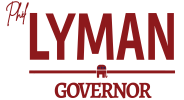Education
Policy Vision
Review the Utah Board of Education Policy
- Respect the family’s unique and comprehensive role
- Protect conscience & religious belief in school
- Restore schools to their limited and proper role
- Respect teachers who play a vital role in public education
- Reject programs, policies, or practices that exploit children
When it comes to K-12 public schools, Utah must…
Prioritize foundational academics first
- Utah spending on public education is at an all-time high of $7.3 billion, and yet our students’ proficiency scores keep declining.
- We need to stop throwing money and resources at widely promoted but deeply flawed approaches, such as intrusive social emotional surveys & lessons, discriminatory social justice ideologies, sexualized content, labeling kids according to identity politics, and excessive use of tech to program & track student mindsets.
- With a strong focus on time-tested, traditional methods & content to teach reading, writing, arithmetic, history, and science, our children will be prepared to think and act wisely based on objective & self-evident truths.
Protect conscience & religious belief in schools
- Our schools are becoming battle grounds for society’s culture wars and our children are on the front lines.
- Children need to know they can act on their sincerely held internal sense of right and wrong without fear of punishment.
- By upholding strong laws like 53G-10-205, we send a clear message that a school must respect students’ and parents’ rights to not participate in any aspect of school that would violate their conscience or religious belief, which protects them from being complicit in their own indoctrination.
Restore schools to their limited and proper role
- A wise approach is to prepare the child for the road, not the road for the child. Schools have a proper role; providing every imaginable need—medical, psychological, behavioral, emotional & physical—even providing for food, clothing & shelter is outside that role.
- By transforming schools into social welfare service centers, we incentivize dependency mindsets & habits in our children & families, leading to expensive, unsustainable programs that place unwarranted burdens taxpayers.
- Less is more! Schools must be schools, with a streamlined focus on scholastic achievement and merit—budget reforms will ensure schools don’t drain taxpayers, or encroach on family time, responsibilities, and privacy.
Respect the family’s unique & comprehensive role
- Teachers play a vital role in public education; in fact, they are central to public education. The role of parents is inviolable and nontransferable. Systems that understand and respect these roles are positioned to make policy that is beneficial to teachers, students, parents, and society. Systems that fail to respect these roles are bound to a string of failed policies.
- No school, regardless of how well meaning its programs & people, can take the place of a healthy family— families are the fundamental unit of all free and civilized societies. Utah should be the role model of family-centered schools.
- Utah law upholds parents as the primary educators of their children. Schools should always defer to parents to address sensitive, controversial, or personal issues or questions involving their students. Students should be referred to a parent’s direct care when behavioral issues arise that create hostile learning environments.
- Students or parents who create a dangerous environment for other students must be dealt with swiftly and decisively. No violence against teachers should be allowed, and teachers must be empowered to have students removed from schools when their behavior is a threat.
Reject partnerships, programs, policies & practices that exploit children
- There are too many micromanaging middlemen who stand to profit financially, politically, and socially by manipulating children and dictating what happens in the classroom.
- A child’s education should not be a means to somebody else’s ends—
it should be the end, in and of itself. - To protect impressionable youth, the state must ensure that schools do not use children to promote global, national, or local agendas, fill workforce quotas, solve for real or manufactured societal problems, or lobby or agitate as activists for causes inside or outside of school.
Statement on Higher Education
Article X, Section 1 of the Utah constitution states: “The Legislature shall provide for the establishment… of a higher education system.”
State colleges and universities should be bastions for free expression. They should challenge students to expand their views and to broaden their comprehension of the world around them. Still, they are state establishments and, as such, should refuse to host drag shows, should ban the practice of requiring preferred pronouns on campus, and should require U.S history and government classes. They should root out insurgent foreign ideology such as Chinese influence, environmentalist and climate change dogma, and other unfounded and cultish creeds, including religious tenets, that require unnatural adherence.

